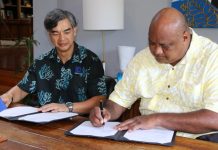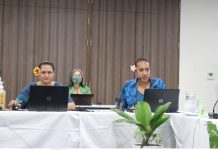The UNCAC Coalition has responded to the very modest advances in the Political Declaration adopted today by world leaders meeting at the first-ever UN General Assembly Special Session (UNGASS) on the topic of corruption with a call for strong action and leadership by governments truly committed to the fight against corruption.
“Diplomatically-worded statements will not help the billions of people whose lives are damaged by corruption. We need leadership from the countries truly committed to preventing and fighting corruption at home and abroad,” said Mathias Huter, Managing Director of the UNCAC Coalition, a global civil society network of more than 350 non-governmental organisations committed to advancing the implementation of the UN Convention against Corruption (UNCAC).
The UNGASS Political Declaration, while containing some relevant commitments such as securing safe space for civil society and journalists, will not be sufficient to ensure substantive progress in global efforts to prevent corruption, hold perpetrators to account, and increase the recovery and return of stolen assets.
The Covid-19 pandemic has exposed massive shortcomings in governance structures around the world, with aid money and public procurement funds being stolen or diverted to those with political connections, depriving millions of access to health care and urgently needed help.
Governments need to learn the right lessons of this global health crisis – and the economic and governance crisis that has ensued:
*by strengthening public access to information, transparency of decision making, government contracting and spending, as well as ensuring the full disclosure of the direct and ultimate owners of companies and other legal entities;
*by guaranteeing an enabling environment for civil society organizations working on anti-corruption;
*by guaranteeing the protection and support of whistleblowers, investigative journalists, and anybody who uncovers and reports on corruption;
*by enhancing accountability mechanisms for public and elected officials;
*by ensuring that oversight institutions have the necessary powers, independence and resources to fulfil their roles effectively;
*by stepping up efforts to work with other jurisdictions to investigate, prosecute and hold accountable those involved in corruption, as well as those who facilitate it, such as brokers, agents, lawyers, accountants, auditors and banks; and
*by advancing the recovery and return of stolen assets in a transparent and accountable manner to repair the damages caused by corruption.
“In particular, the Political Declaration does not adequately address the urgent need for the international community to end the impunity of powerful individuals in large-scale corruption cases,” said Huter. “Following the UNGASS, governments need to work on implementing the commitments they have made – and they need to be public about what they are doing to follow up on their political promises. To ensure that anti-corruption reforms have the desired impact, governments need to work closely with civil society and other non-governmental stakeholders.”
“For the recovery from the pandemic to be effective, it must be free of corruption, which can only be achieved with full transparency and strong integrity measures,” said Helen Darbishire, Executive Director of Access Info Europe and Chair of the Board of the UNCAC Coalition.
“A particular priority is for governments to act to open company registers so that the structures used to launder money and avoid taxes worldwide can be eliminated – this one transparency measure could help save billions in lost tax revenue, reducing illicit financial flows, and securing the resources needed to recover from the pandemic and to advance with the Sustainable Development Goals,” added Darbishire.
Over the past year, the UNCAC Coalition and many of its member organizations have engaged with delegates involved in the preparation of the UNGASS Political Declaration, urging governments to step up their anti-corruption commitments and to scale best practice approaches worldwide.
Governments need to go beyond the consensus of measures agreed in the Political Declaration in their anti-corruption efforts, in particular by:
*adopting and implementing strong access to information laws that comply with international standards, recognizing a fundamental right of access to information held by State bodies, and by establishing independent commissions or commissioners to supervise the implementation of this law, and to promote effective and timely access to information;
*implementing open contracting approaches and ensuring full public access to information and to all documents and agreements throughout the lifetime of a contract, from planning to implementation, by publishing all state contracts online, including in standardized open formats such as the Open Contracting Data Standard;
*establishing freely accessible company ownership registers containing information on the direct and beneficial owners of companies, foundations, trusts and all other legal entities, with timely and accurate information that can be accessed easily and used by law enforcement and competent authorities as well as by the private sector, journalists, civil society and the general public;
*adopting and implementing measures to ensure adequate transparency and accountability in the financing of political parties and electoral campaigns, as well as independent, adequately resourced oversight of the finances of parties, candidates and campaigns;
*requiring annual public asset and interest declarations from public officials and elected leaders in decision-making positions, mandating that these declarations are made public online in easily accessible formats, ensuring the independent verification of the filings, and establishing and enforcing effective sanctions in cases of non-compliance;
*promoting a safe and enabling environment for civil society, guaranteeing the safety of anti-corruption activists, witnesses, whistleblowers, journalists and others who uncover and report on corruption, and by actively facilitating the participation of civil society and other non-state stakeholders in national, regional and international anti-corruption efforts;
*taking concrete steps to strengthen the capacity as well as the political and operational independence of institutions and oversight bodies that play a crucial role in national integrity systems, such as election commissions, regulatory and oversight bodies, anti-corruption bodies, financial intelligence units, law enforcement agencies, supreme audit institutions, the judiciary and parliaments;
*addressing weaknesses in legal frameworks and enforcement systems and ensuring effective investigations and enforcement of all domestic and foreign corruption offences; and by publishing detailed, comprehensive and timely data on criminal, civil and administrative investigations, charges, proceedings, outcomes and mutual legal assistance activity;
*adopting and implementing comprehensive legislation on reporting mechanisms and whistleblower protection in line with best practice and international standards; by ensuring transparent implementation in practice as well as robust protection from retribution and criminalization to all whistleblowers and their families, providing them with timely and effective assistance and resources as needed;
*taking effective action against the serious crime of grand corruption and encouraging the exercise of extraterritorial jurisdiction for the prosecution of the same on a national, regional and international level, in line with UNCAC Article 16.2;
*making settlement agreements public, including their terms of justification, the facts of the case and the resulting offences, providing for effective sanctions, and including reparations for damages caused by the corruption as part of the settlement agreement;
*recognising that corruption is not a victimless crime; by establishing legal frameworks to enable and facilitate the compensation of both individual and collective victims of corruption (communities); by increasing efforts to repair damages caused by corruption by providing victims with material and/or symbolic reparations; and by granting independent non-governmental organizations legal standing before all courts to represent individual and collective victims of corruption;
*advancing the recovery and return of assets, ensuring transparency and accountability at all stages of the process with the close involvement of civil society and in a manner that contributes to fulfilling the Sustainable Development Goals (SDGs) as well as to the reparation of the damage caused to victims and to society; by considering a new multilateral agreement and/or mechanism to overcome asset recovery roadblocks;
*acknowledging gendered forms of corruption, producing gender-disaggregated data on corruption offences, ensuring the criminalisation of sextortion, and creating safe and gender-sensitive corruption reporting mechanisms for women and other vulnerable persons;
*making the UNCAC implementation review process more transparent, inclusive and effective, including by committing to involve non-governmental stakeholders in the review process, publishing key documents of the review and information on the process, and by agreeing on a mandatory follow-up mechanism that reviews progress made on implementing recommendations from previous review cycles; and
*launching an inclusive mechanism for Member States, international organizations, experts, civil society representatives and other stakeholders to develop solutions to close gaps in the existing anti-corruption framework and address shortcomings in implementation.
SOURCE: UNCAC COALITION/PACNEWS


















